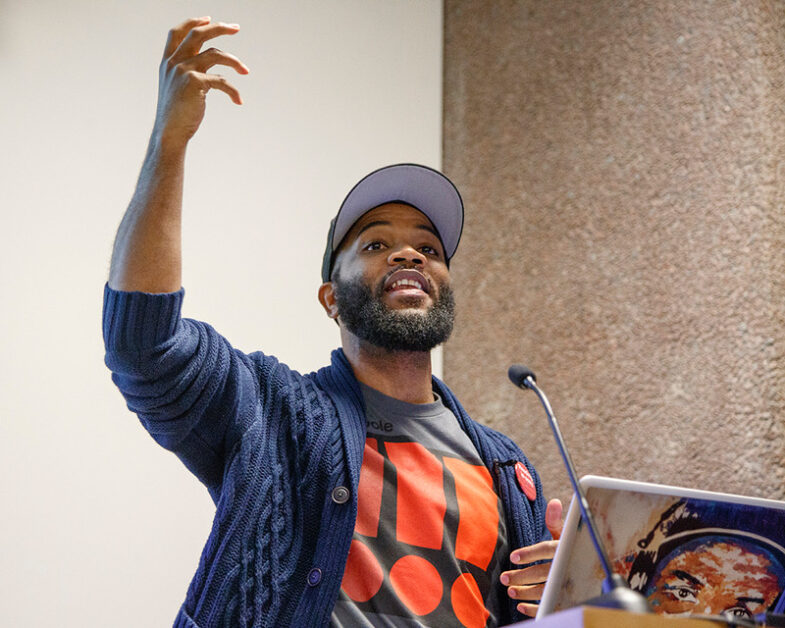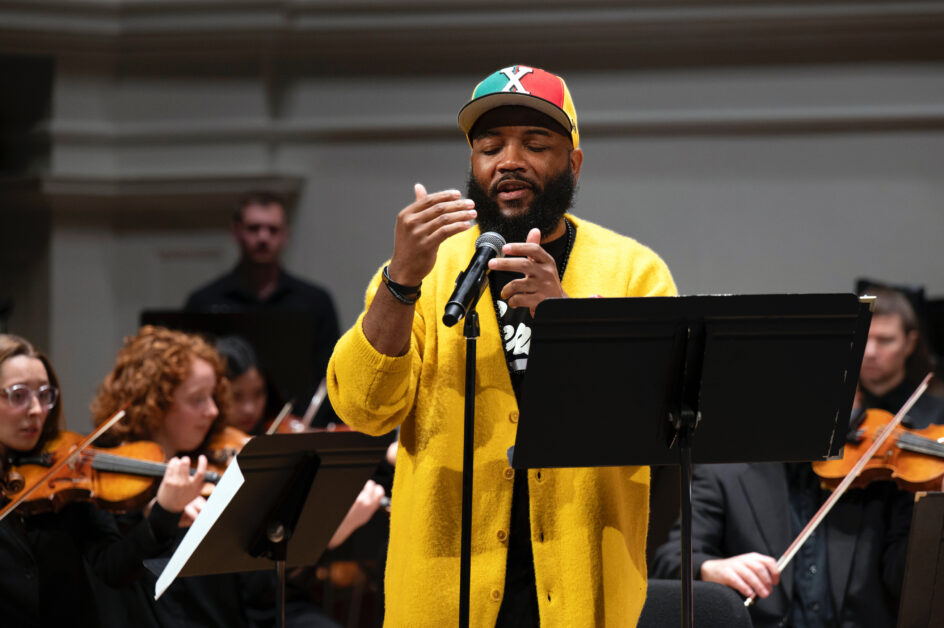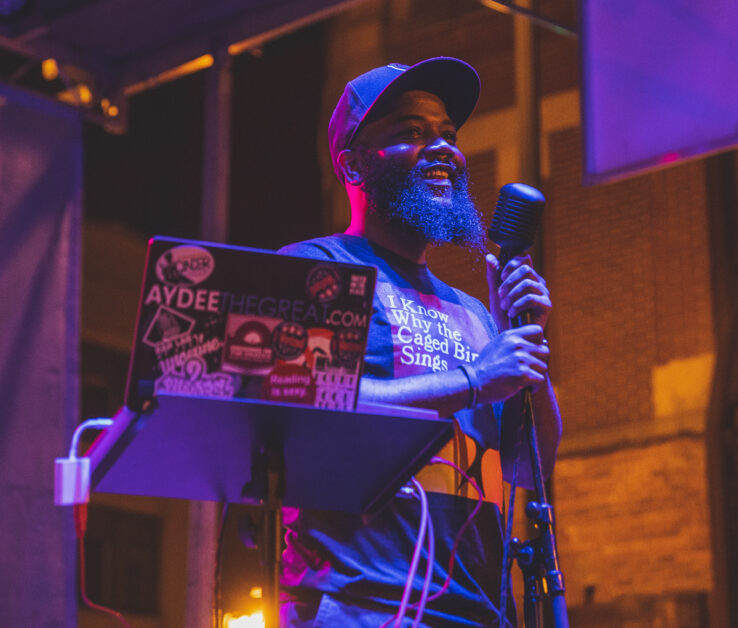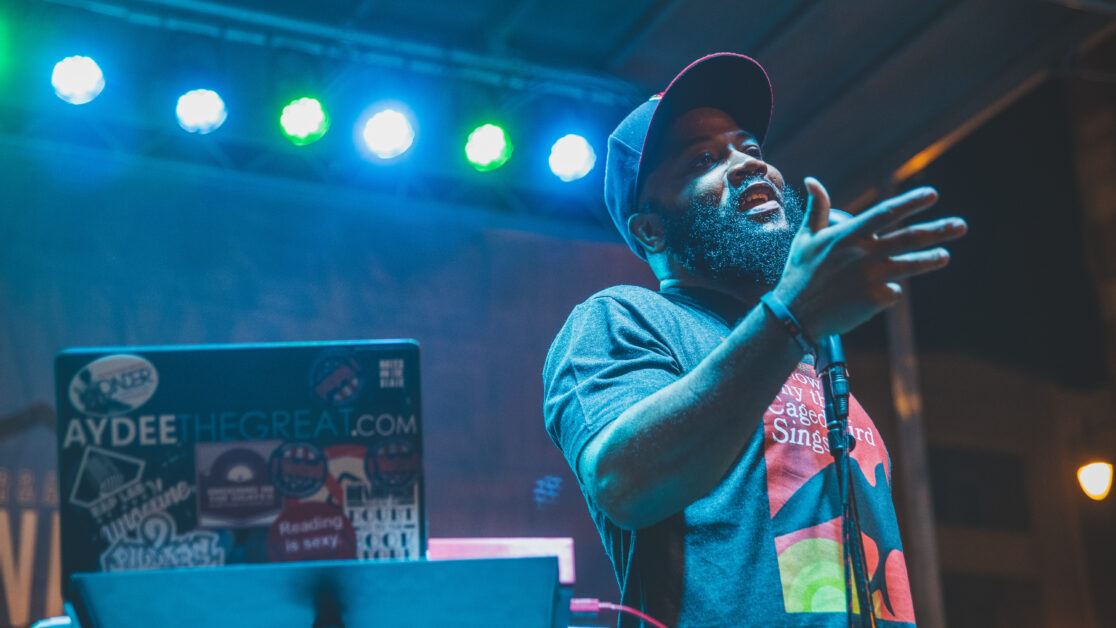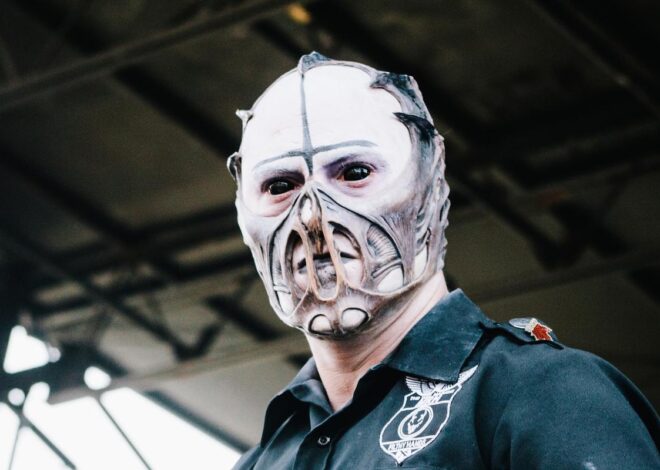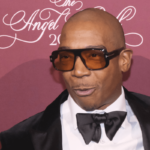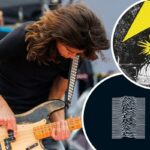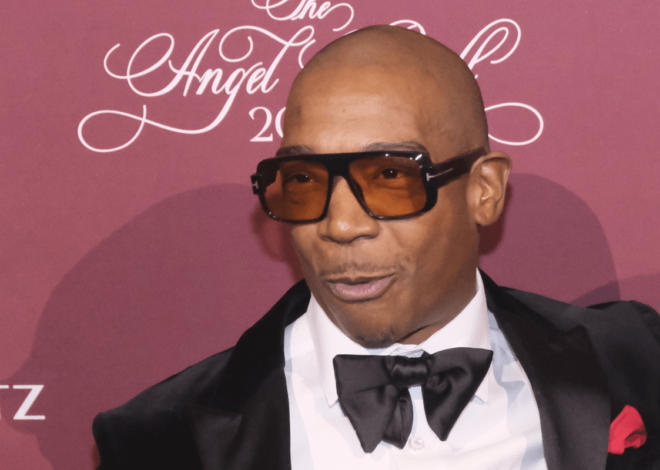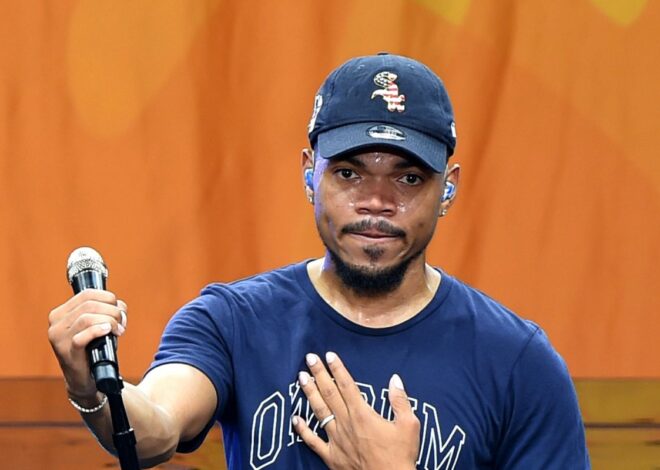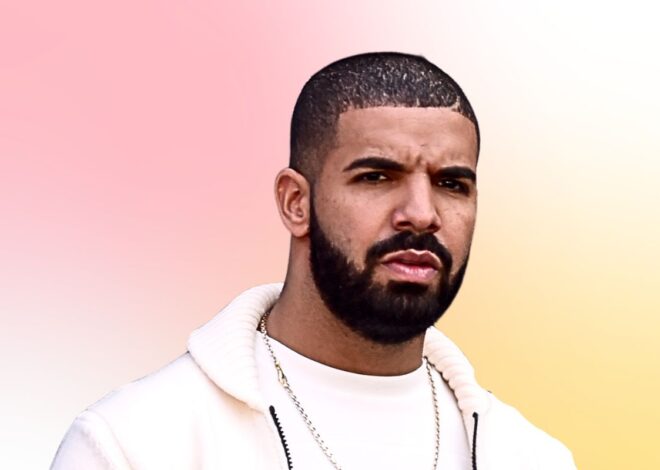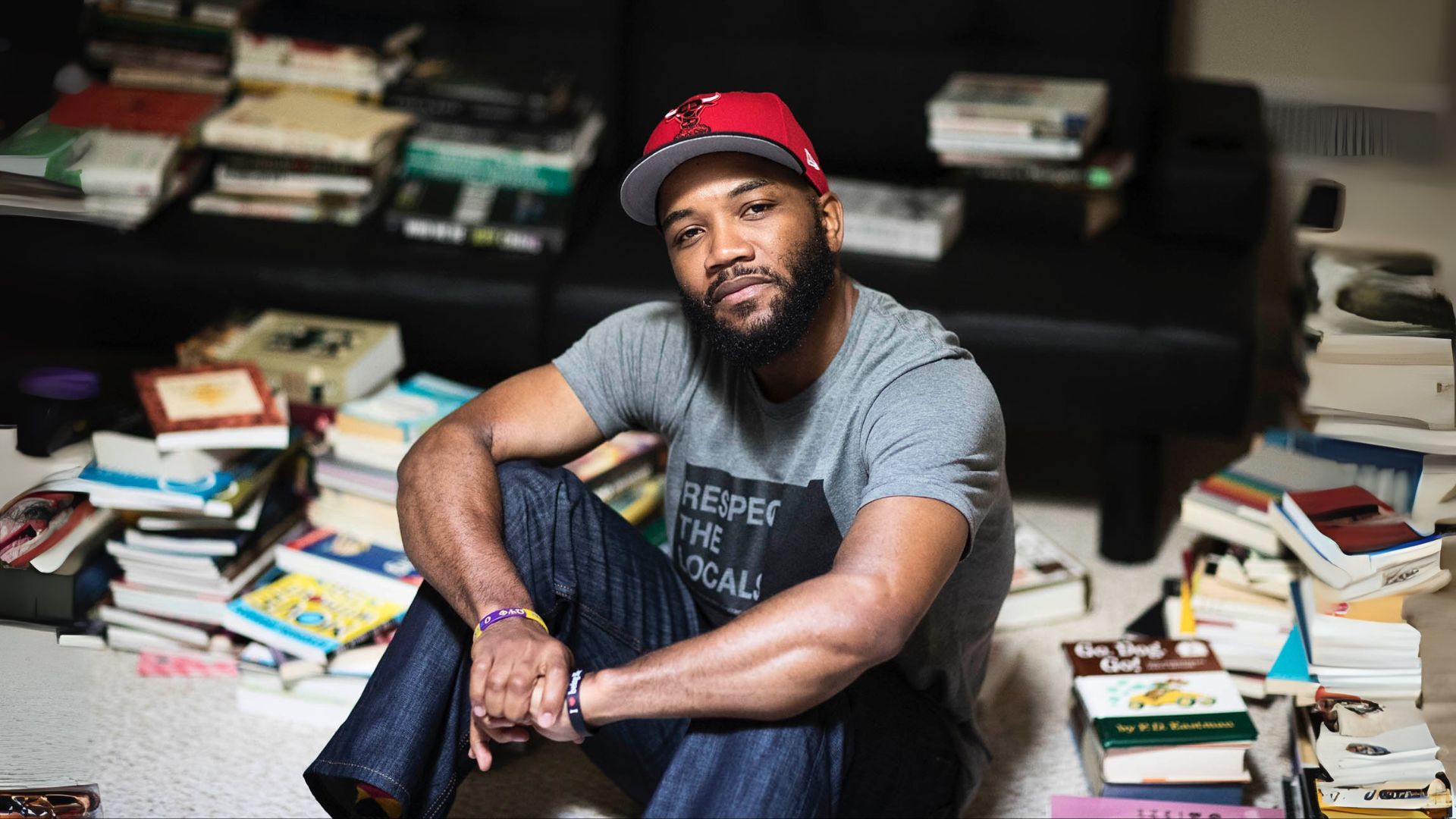
Why Rap Scholar Dr. A.D. Carson Says Hip-Hop Isn’t Dead—Just Still Misunderstood
Hip-Hop has always been a culture of innovation, where MCs, DJs, producers and thinkers bend the rules to create something greater than themselves. But every so often, a figure emerges who embodies that spirit in ways the culture doesn’t always expect. Enter Dr. A.D. Carson—a man who straddles two worlds that are often seen as separate: Hip-Hop and academia.
Carson isn’t just a rapper with a Ph.D. or professor, who dabbles in beats. He’s the rare example of someone who has made Hip-Hop the foundation of his scholarship, his artistry, and his life’s work. He famously submitted a rap album as his dissertation to earn his Ph.D., defended it, and went on to become the Professor of Hip-Hop at the University of Virginia. That alone is a revolutionary act: proving that rap is not only an art form but also a legitimate mode of knowledge, theory, and intellectual inquiry.
At a time when Hip-Hop is often reduced to numbers—streams, chart positions, viral moments—Carson represents something different. He demonstrates that Hip-Hop is a rigorous tradition capable of shaping classrooms as much as it shapes clubs. His work with orchestras, his seven-album tenure journey, and his upcoming book Being Dope all highlight his mission: to make sure Hip-Hop is recognized as both cultural inheritance and scholarly framework.
A.D. Carson is not here to simply blend in. He is here to remind us that Hip-Hop can teach, critique, heal, and theorize—without ever losing the beat. Please enjoy an edited version of the interview, but be sure to watch the full video as well.
AllHipHop (Chuck “Jigsaw” Creekmur): A scholar and a rapper—something we don’t hear often—Dr. A.D. Carson. How you doing, man?
A.D. Carson: Peace, bro. I’m good, I’m good. How about you?
AllHipHop: I’m good, bro. It looks like your beard’s gotten longer since the last time I saw you.
Carson: (Laughs) Yeah, and a little grayer too. That’s wisdom and stress showing up.
AllHipHop: Let’s start with the MC part of you. Talk about your most recent projects.
Carson: This summer I released two albums—one with the Charlottesville Orchestra and another called For Immediate Release. That project was me previewing ideas from my upcoming book. A lot of people know me either as a rapper or as a scholar, but not always both. So, I pulled from past work—talks on NPR, 60 Minutes, even with Tavis Smiley—to show how those worlds overlap. For Immediate Release uses my own commentary as samples.
AllHipHop: You’ve got receipts in both Hip-Hop and traditional academia. What’s your outlook on the intellectual side of Hip-Hop now versus when we were younger?
Carson: It’s a lineage, not a competition. I owe a lot to people like Tricia Rose, Cornel West, Ammani Perry, and even rappers like Mad Skillz. I defended a rap album as my dissertation, and that distinction matters. In an “attention economy,” people try to skip steps, but I actually sat in doctoral courses, defended my work, and earned that space. Don’t confuse that with honorary titles or surface-level recognition.
AllHipHop: What are your general thoughts on the state of Hip-Hop?
Carson: I don’t believe Hip-Hop is dead. It’s always been about doing what we can with what we have. When people say it’s dead, they’re really talking about capitalism’s treatment of Hip-Hop. The culture itself—what’s happening in studios, classrooms, communities—is alive and thriving. The problem is media machines framing the narrative around beefs and charts. That’s not the whole story.
AllHipHop: I interviewed Robert Taylor, “Lee” from Beat Street, and some of the younger crowd dismissed his experience. What’s our responsibility to elders?
Carson: We need to respect elders as elders. Robert Taylor helped spread Hip-Hop worldwide. Treating his truth like it’s not valid is dangerous. At the same time, we also need to listen to youth—not just demand they recreate the music of our golden era. Both elders and youth have something important to say.
AllHipHop: Tell us about your new book.
Carson: It’s called Being Dope: Hip Hop and Theory Through Mixtape Memoir (Oxford University Press). It contextualizes the lyrics from the seven albums I released while earning tenure. My goal is to show how rappers theorize and how music itself can function as scholarship. Pieces from the book have already appeared in Rolling Stone, LA Times and Washington Post.
AllHipHop: Do you code-switch between academic and Hip-Hop spaces?
Carson: No, I try to be me everywhere. Early on, I wrestled with how to present myself—ties in classrooms, casual gear elsewhere—but I learned to just show up authentically. My music isn’t “academic rap”; it’s the same kind of Hip-Hop I’ve always made, just reflecting what I know now. Growth should be audible in your art.
AllHipHop: Some say rappers keep repeating the same content. I have heard Your thoughts?
Carson: Stylistically, things may sound similar, but the content often evolves. Listeners sometimes miss that because they focus on cadence. Take Vanilla Ice’s “Ice Ice Baby”—he literally rapped about a drive-by and being passed over by cops, but people ignored the content. Same with the Clipse. Folks say “just coke rap,” but their new album touches on mortality, parents, deep themes. We have to listen.
AllHipHop: Have students ever stumped you?
Carson: All the time—with word origins, etymology, or obscure slang. I’ll tell them, “Give me a couple days.” But if they challenge me to rap, they learn quick I can hold my own. I’m not there to make them fans, but they realize I really do this.
AllHipHop: Give me your Top 5, dead or alive, that impacted you most.
Carson: André 3000, Lauryn Hill, Method Man, Tupac and Early Common. I grew up in the Midwest, so I also listened heavy to 8Ball & MJG, Twista, and St. Louis artists. But those five made me want to rap and teach through music.
AllHipHop: What about battle rap today versus back in the day?
Carson: It’s its own art form now—part improv, part performance. More like comedy in its precision. Not everyone can cross from battle rap to albums, but those who do—like Loaded Lux, Ab-Soul, Sue Surf—show incredible range. I even dedicate a week in my class to studying battle rap as a genre.
AllHipHop: You worked with the Charlottesville Orchestra. What was that like?
Carson: I didn’t want to just rap over instrumentals. I asked, “How can this orchestra be a tool to say something new?” The result was exploring metaphors, symbolism, and social commentary. For example, I compared Black youth killed by police to fruit shaken from trees before ripening—people often care more for metaphorical fruit than actual lives. That’s the power of metaphor.
AllHipHop: Dr. A.D. Carson, this has been powerful. Any final words?
Carson: Yeah—stop believing everything you hear on the internet.
AllHipHop: Salute. Appreciate you, brother.
